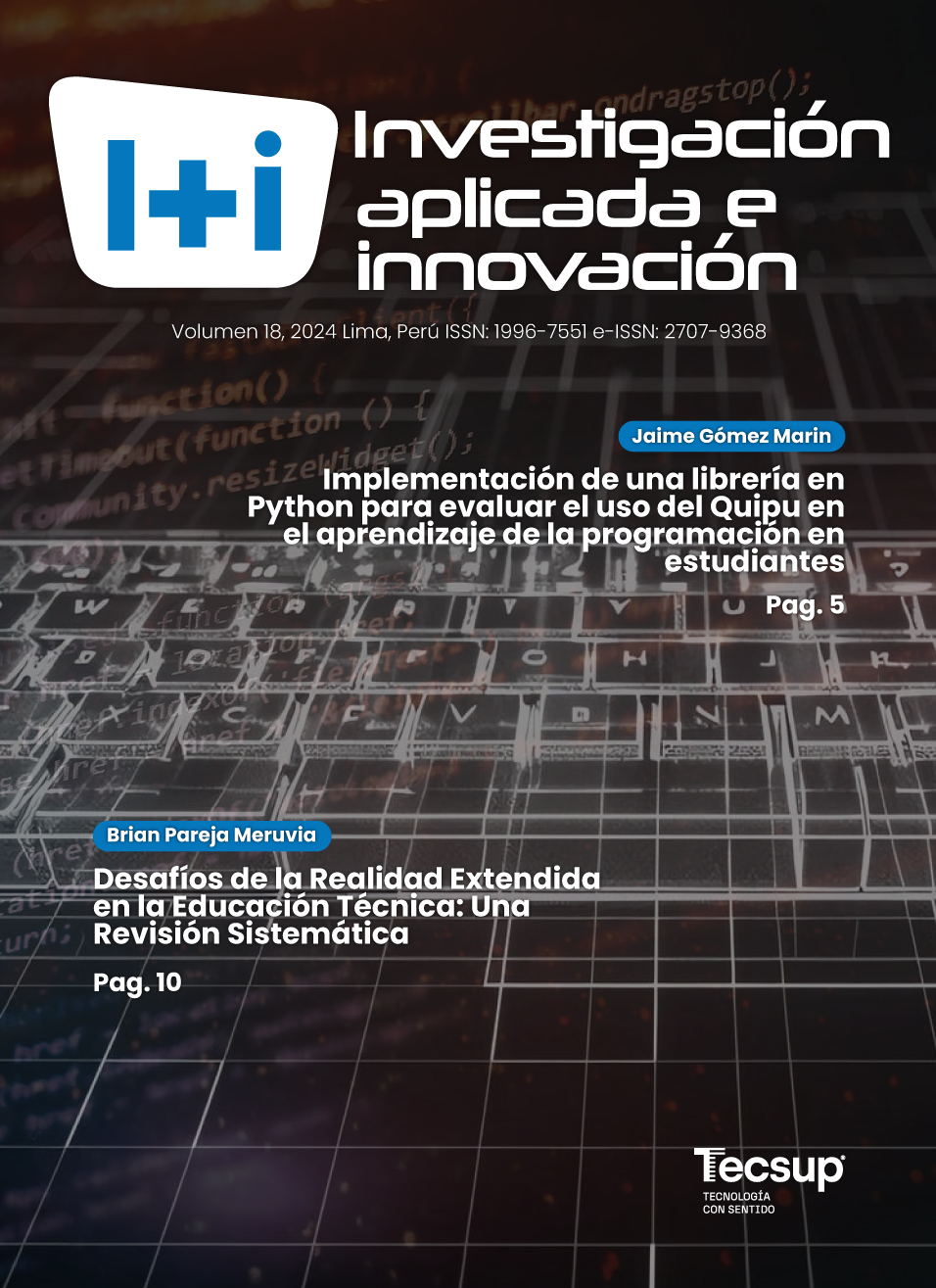Remote Access to Computer Laboratories as a Facilitator of Active Learning in Technical Careers
DOI:
https://doi.org/10.71701/revistaii.v.18.2024.99Keywords:
Remote access, Remote computer laboratories, Remote connection, Theoretical-practical learningAbstract
The study focuses on the implementation of a remote access service to computer laboratories to improve theoretical-practical learning in technical educational environments. The general objective is to contribute to the implementation of a remote and secure connection using tools available on the market and their acceptance in the teaching-learning process. To achieve this, specific objectives are set, such as deploying an efficient solution, analyzing the effectiveness of remote access, and identifying associated challenges and opportunities. The scope of the study is limited to students and teachers of technical computer science courses at specific educational institutions, collecting quantitative and qualitative data to fully understand the topic. The methodology used includes surveys, semi-structured interviews, analysis of academic data and literature review. These methods allow us to collect perceptions, experiences and opinions, as well as compare the academic performance of students who use remote access and those students who do not. Results are expected to show an increase in student engagement, improvements in academic performance, and greater satisfaction with the educational experience. Additionally, it is anticipated to identify areas of improvement and recommendations for the effective implementation of remote access in technical educational environments. Regarding the main findings, the study is expected to provide a detailed view of how remote access can improve active learning in technical careers, as well as identify areas of improvement and recommendations for their effective implementation. The conclusions highlight the importance of remote access as an effective tool to facilitate learning in technical careers, as well as the need to improve its implementation to maximize its benefits.
Downloads
References
AnyDesk. (2021). Remote access & support for educational facilities. AnyDesk.
Balyk, N., Oleksiuk, V. & Halas, A. (2020, noviembre). Development a computer network user support tool. CEUR Workshop Proceedings.
Bastidas, C. (2011). Enabling remote access to computer networking laboratories for distance education. 2011 Frontiers in Education Conference (FIE), F3C-1-F3C-6. https://doi.org/10.1109/FIE.2011.6142731
Caminero, A. et al. (2016). VirTUal remoTe labORatories Management System (TUTORES): Using cloud computing to acquire university practical skills. IEEE Transactions on Learning Technologies, 9(2), 133-145. https://doi.org/10.1109/TLT.2015.2470683
Feisel, L. & Rosa, A. (2005). The role of the laboratory in undergraduate engineering education. Journal of Engineering Education, 94(1), 121-130. https://doi.org/10.1002/j.2168-9830.2005.tb00833.x
GitHub. (2024). osTicket: The osTicket open source ticketing system official project repository. GitHub. https://github.com/osTicket/osTicket
Kiyoumarsi, F. & Alkabool, A. (2023). An online virtual laboratory model based on the Internet of Things for use in the field of renewable energy. Applied Computing Journal, 265-271. https://doi.org/10.52098/acj.2023321
May, D., Jahnke, I. & Moore, S. (2023). Online laboratories and virtual experimentation in higher education from a sociotechnical-pedagogical design perspective. Journal of Computing in Higher Education, 35(2), 203-222. https://doi.org/10.1007/s12528-023-09380-3
Downloads
Published
Issue
Section
License
Copyright (c) 2024 Godofredo Teobaldo Díaz Espinoza, Jaime Moshe Farfán Madariaga (Autor/a)

This work is licensed under a Creative Commons Attribution-NonCommercial 4.0 International License.


